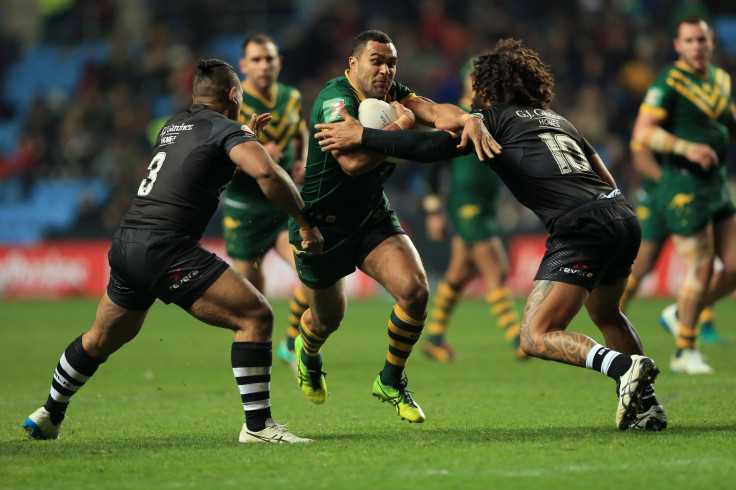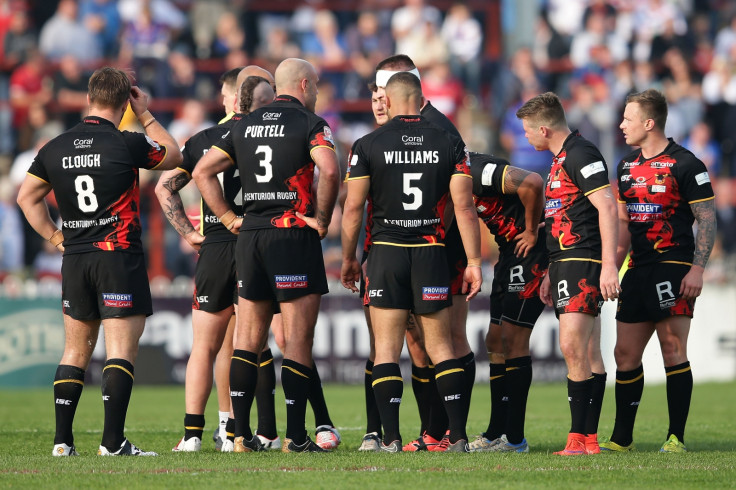Rugby League must admit war with union has been lost
As Australia face New Zealand in a Four Nations final again has league reached the end of the road?

And so another international rugby league tournament reaches its climax with an Australia vs New Zealand final. The teams will face each other in the Four Nations final at Anfield on Sunday after just over three weeks of casual sparring. The last three World Cup finals have been contested by these two antipodean nations, with Australia declared the champions in seven of the last eight editions. While the pair tend to dominate the Four Nations, the Kiwis have at least prevailed in two of the last three tournaments.
So overwhelming has been Australia's dominance of the international game that the country's rugby league hierarchy fear that players now place global tournaments only third in their list of priorities behind the domestic league and the best-of-three State of Origin series, the annual battle between New South Wales and Queensland. This is of particular concern to those who running the sport in Australia, with the World Cup arriving down under next year.
England's international fortunes have been in steep decline since Great Britain were split into its constituent parts ahead of the 1995 World Cup. England have reached one World Cup final since that decision where as before then GB had appeared in seven of the previous nine. With the north of England being rugby league's heartland on these islands, Wales and Scotland don't have enough talent to thrive on their own. The same goes for England.
It is a sign of rugby league's muddled thinking that the sport's attempts to expand the game have actually shrunk it. Identity came at the expense of competitiveness. The 1995 World Cup featured more teams than any previous tournament, as England and Wales were split. The former even reached the final but that success was a false dawn. Since the pair's fortunes have faded, Australia and New Zealand have soared.
In order to bump up the tournament to 16 teams a whole host of South Sea Islands now competed but, bar Papua New Guinea, few have made real progress. The likes of Fiji, Tonga and Samoa have found greater success at the rugby union World Cups.

That there are different versions of the game is due to an historical quirk which no longer exists. Rugby league was created to allow working men to earn money for playing the sport when union was steadfastly amateur. The two codes have more similarities than differences and since union adopted professionalism in 1995 it has gone from strength to strength. Union's premier global event has thrived and expanded and in 2019 fringe nation Japan will host the next tournament.
The last two decades have seen rugby union steal a march by expanding competitions and attracting bigger television deals; all fuelled by adaptations to the sport which have seen it become much faster and more entertaining. The code has even reached the Olympic Games in the guise of sevens, as its high-tempo captured the imagination at Rio 2016.
A few of us have dared to remain fans of both codes. But in its northern English heartland, league is under siege. My team, Bradford Northern, were rebranded as the Bulls when Rupert Murdoch's introduction of the Super League switched the sport to the summer months and gave it a burst of life. The Bulls won the Super League in 1997, 2001, 2003 and 2005, but now they are as good as bankrupt having gone into administration this week for the third time.

Is it time to think the unthinkable, and merge the two codes? The sports are not that dissimilar. Changes to union's laws have seen rucking become almost like league's play-the-ball. Meanwhile, league's scrums are almost pointless, while union's also have a novelty attached to them.
The cultural and geographical differences between the codes could even be a benefit, rather than a hinderance. League is traditionally northern and working class; union has a reputation as more middle class. Together rugby would have a broader base. To the loyalists this would be anathema, but without it one of them is fading away into irrelevance.
Many years ago a friend suggested that I watch too much sport. His solution: "Why don't you give up one of the rugbys?" For the sake of league's survival, the very least it should do is return to a national British team and ensure the sport has three teams which can compete. If not, a merge may be necessary rather than optional.
© Copyright IBTimes 2025. All rights reserved.






















